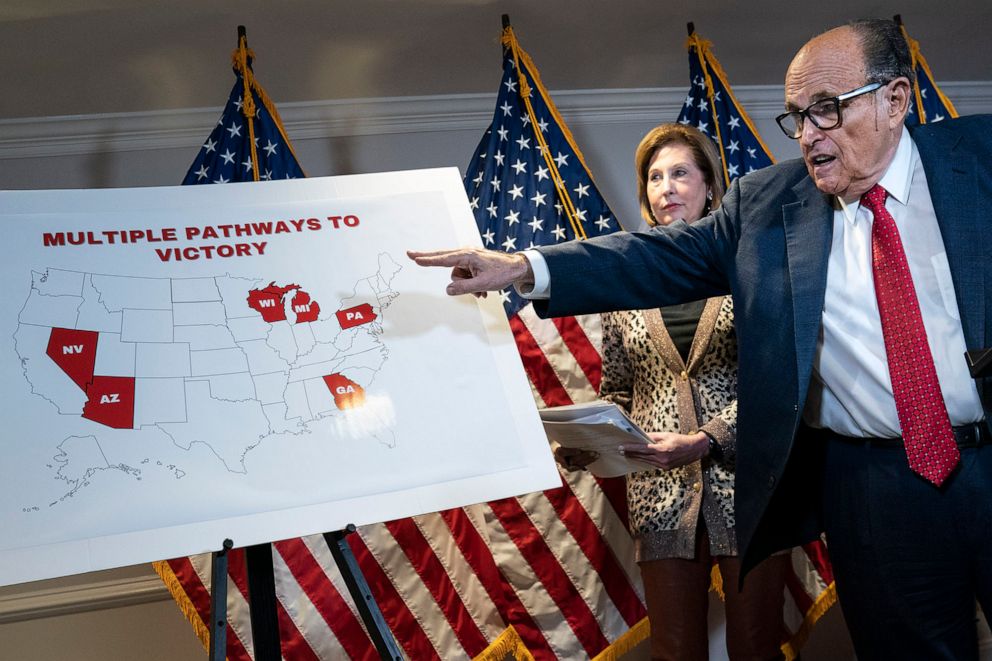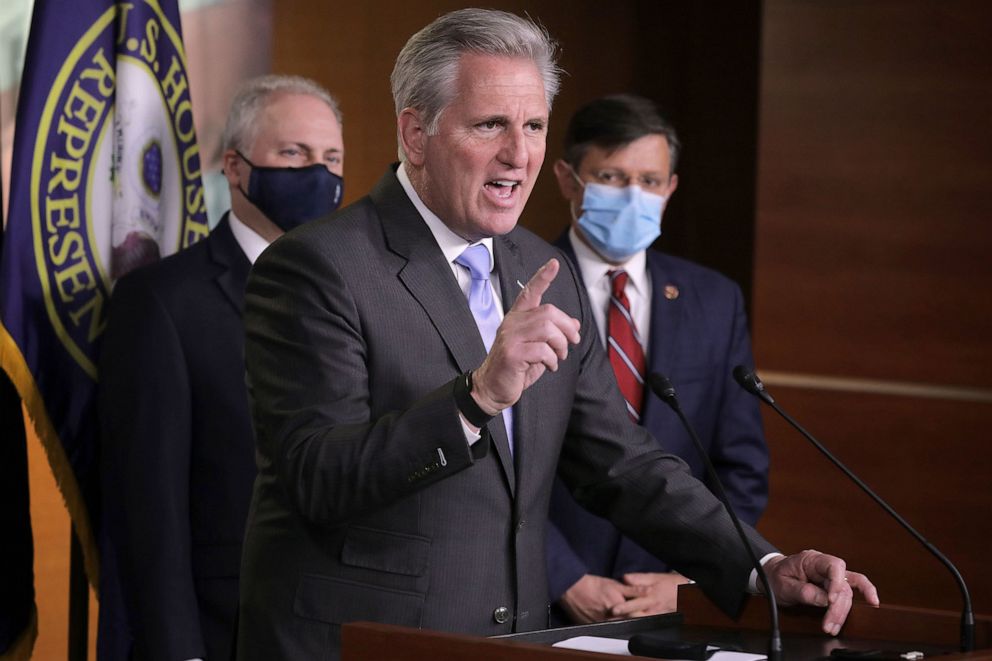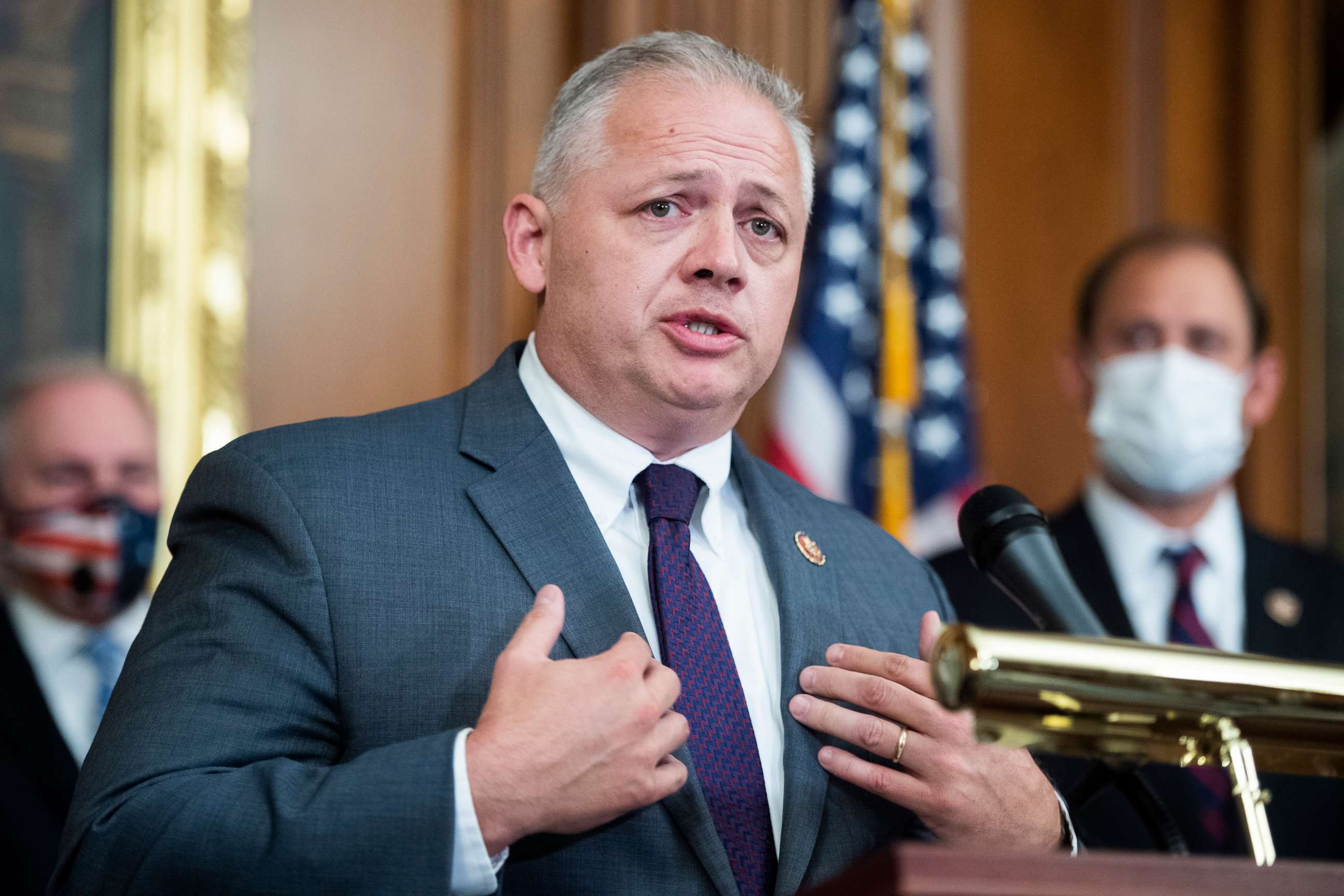GOP has to 'get back to policies and ideas': Rep. Denver Riggleman
He said he fears election conspiracies could go on to create fractionalization.
The Republican Party has to move back toward "policies and ideas" and away from conspiracy theories like those about the election, outgoing Rep. Denver Riggleman, R- Va., said on ABC News' "Powerhouse Politics" podcast.
Riggleman was one of the first Republicans to publicly accept Joe Biden as the president-elect and told ABC News Chief White House Correspondent Jonathan Karl and Political Director Rick Klein that fear of the base was keeping other elected officials from doing the same.
"Why is it that the strongest voices that we have heard are coming out, demanding or calling on the president to do the right thing -- have the strongest Republican voices -- are either people that are leaving Congress or who have already left Congress?" Karl asked.
"Yeah, I think it's fear," Riggleman said. "But right now, I think it's fear of the electorate and the base and maybe those few points that could cost him a primary, not get them reelected or maybe somebody is going to say something mean about them on Twitter."
Riggleman, who lost the Republican primary in Virginia's 5th Congressional District to further right-leaning Rep.-elect Bob Good, highlighted recent legal attempts by the Trump campaign to overturn election results. Lawyers representing or defending the president, including Rudy Giuliani and Sidney Powell, have presented baseless conspiracy theories about voting machines and connections with foreign nations, among others.

"But right now, with the incredible conspiracy theories that we're seeing and what just happened with Sidney Powell and Rudy Giuliani and some of the things we're seeing, I almost find it -- that it would help you as a Republican in some respects based on integrity, based on policy, to say something ridiculous when it obviously is," he said.
While Riggleman said he expects such theories to dissolve in the courts and in public opinion over the next few weeks, he added that he ultimately fears the conspiracies surrounding the election could continue to create fractionalization.
"I'm going to tell you there's going to be a complete dissolution of this theory. It is going to fragment. But my worry is, is that fragmentation of that theory is just going to cause more fractionalization," Riggleman said. "And some of these social media platforms like Parler or Gabb or Batsuit, and now you're going to have a radicalization movement in some of these areas."
"Let's be honest, a lot of these platforms are opening up because we have issues with Twitter and Facebook censoring some of the crazier parts of this. And they don't want that. And the thing is, you can monetize insanity pretty quickly on some of these platforms," he added.
Riggleman's new book "Bigfoot...It's Complicated" examines conspiracies surrounding Bigfoot, but has opened him to examining other conspiracy theories and their spread, as well.
"Well, then I think it's a critical point and a point you make in your book, that you can't really argue with conspiracy theories. You can't bring reasoned rationality to it. It's kind of take and hold. Where do you see things going in the Republican Party?" Klein said.
Riggleman said such conspiracies had to be refuted "on a level that's just completely sincere and unequivocal."
"That really frightens me, guys. It really frightens me," he said. "I can't imagine that anybody would grab on to any of these theories and any type of way. And just like that press conference with Sidney Powell that the GOP had, that has to be refuted on a level that's just completely sincere and unequivocal. This is crazy. This is nuts. We've got to nip it in the bud right now. And I just don't see that happening in the next two years, honestly."

"That's what I worry about, is the weaponization of culture, ideas or myth, because you think that's true by dehumanizing others. And that is incredibly dangerous," he added.
He said candidates who entertain, don't disavow or believe conspiracies should not be allowed a place in Congress.
"There's three things I would look at as an individual that believes -- it's number one, they're ignorant of it at this point. After all this time, they're so ignorant of it," he said. "Number two, they don't believe it, but they're pandering to people to actually get elected, to fundraise or to stay in the know with certain people that they believe are in power. Or number three, they actually believe it. And all three of those -- to me -- all three of those disqualify you to be a candidate or somebody who serves this great country."
"If you're ignorant of the very things that are being used to dehumanize -- whether it's anti-Semitic behavior, white supremacy -- if you're ignorant of that, you shouldn't be in office. If you are pandering to it, you shouldn't be in office. If you believe it, you definitely shouldn't be in office," he added.

Karl asked Riggleman what he thought House Minority Leader Rep. Kevin McCarthy should do to approach the situation, as at least two incoming freshmen have expressed support for the QAnon conspiracy theory.
"There's only two teams, guys," Riggleman said. "There's only Republicans and Democrats. And if you're not part of that tribe, you're going to be screwed. Right? And that's what you're seeing right now, is McCarthy has to keep together this conference that has a mix of say, brilliant, crazy and dumb. But -- but if you're going to pander to this kind of stuff, it will eventually bite you in the rear parts."




